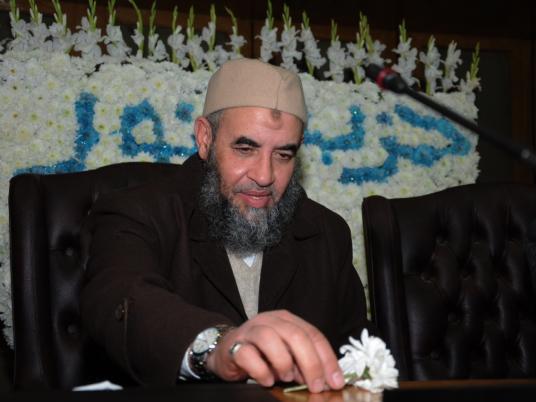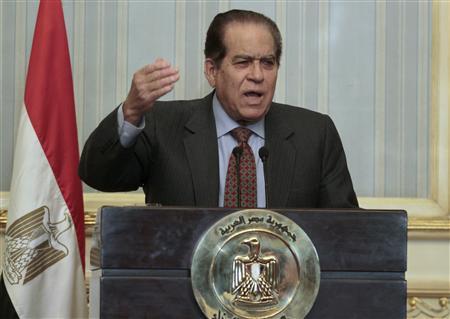Regardless of any reservations over the timing or manner in which the formation of a national salvation government (NSG) was declared from Tahrir Square, this initiative deserves our support. For the first time since Mubarak’s departure, we are witnessing substantial agreement on a number of names seeking to represent the forces behind the revolution and to negotiate on their behalf. This in itself is a substantial gain, as we should bear in mind that the dilemma facing the revolutionary forces lies in their inability to seize power or at least to create a unified force capable of exerting concerted pressure on the Supreme Council of the Armed Forces (SCAF).
Consequently, more effort must be exerted to transform this NSG into a long-awaited national council or a democratic front able to contest the vast powers and authorities enjoyed by the SCAF, rather than presenting it as an immediate solution to the current crisis. However, the proposed members of this NSG may not perceive the initiative this way, and decide instead to utilize the street’s pressure to reach a “gentleman’s agreement” over the authorities it will enjoy prior to accepting the responsibility. This is a possibility. What concerns us here, however, is to determine an initial vision for engaging with this battle, regardless of how much of this vision can be achieved on the ground. This vision can be summarized in four points.
First, in light of the proposed role of the NSG as a national council, its first obligation should be the creation of an executive entity that speaks on its behalf and manages its daily tasks on the ground. How absurd it was for some pro-NSG figures to indulge in the Egyptian elite’s favorite exercise of distributing the proposed ministerial portfolios among themselves in order to demonstrate their worthiness and to show that “the country is not lacking in qualified people.” What we need now is for the interested groups to form a team of people with clear roles who can promptly take part in this initiative.
The NSG’s second obligation is to try to boost initial consensus over the proposed names in order to support its bargaining position. Therefore, opening a new channel of dialogue with the Muslim Brotherhood and other Islamist forces cannot be postponed. Obviously, the Brotherhood’s recent positions have not been encouraging. Yet there is no alternative for this dialogue at least in order to neutralize the Brotherhood. Otherwise, the impression that the initiative is an attempt to circumvent the Brotherhood’s possible parliamentary majority will be enforced and the revolutionary camp cannot afford another clash with the group in these critical times. To make things clearer, when we speak of negotiations we mean negotiations first and foremost with the Brotherhood, even before negotiations with the SCAF.
Third, we must stop thinking through the lines of our experience during the 18 days that led to the toppling of Mubarak. To be a bit blunt, it is unrealistic to presume the possibility of overthrowing the SCAF through a Tahrir Square sit-in and by following tactics revolving around the idea of civil disobedience. On the contrary, we must prepare ourselves for a long battle, which could extend till after the parliamentary elections. On the one hand, the SCAF enjoys a political cover, which was not available to Mubarak, represented by a number of parties and movements, including the Brotherhood, despite the apparent divergence with the SCAF in recent weeks. As is obvious, the attempt to pull the Brotherhood back to Tahrir Square failed; furthermore, the veteran organization succeeded in quickly overcoming the crisis and in bringing things back to its favored course — the elections.
On the other hand, it is also obvious that this time the SCAF is one or two steps ahead of us, which was not the case during any previous confrontations. We are about to lose the momentum. For example, the SCAF managed to maneuver the revolutionary forces into delaying the announcement of the formation of a NSG from Tahrir Square by using a number of trial balloons such as floating El Baradei’s name as possible prime minister. This was followed by leaks that Amr Moussa would be appointed to the position and then rumors were spread that power would be handed over to the head of the Supreme Constitutional Court or the president of the Supreme Judiciary Council. The NSG should have been announced last Tuesday in light of the million-man protest, the unfavorable public opinion towards the police and the SCAF, and full support of Tahrir Square for the first time in months. This delay was the result of the same malaise: the failure of the revolutionary forces to come to a consensus over any clear tactic.
Fourth, in light of this time factor, the revolutionary forces do not have the luxury of boycotting or postponing the parliamentary elections. On the contrary, the elections must be engaged with in a way that serves the NSG initiative. It should be clear that the negotiations with the Brotherhood will not yield any clear outcome before the election results are announced and the relative weights of the various forces becomes apparent. Consequently, any strong presence of pro-NSG forces in parliament such as the Egyptian Bloc, the Revolution Continues Alliance, and others, will act as a political cover for the initiative, and will add more pressure on the Brotherhood. At best, this pressure may succeed in blocking the path of reconciliation between the Brotherhood and the SCAF and in winning over the Brotherhood for the NSG option, while in the very least it may result in a body representing a democratic front — backed by a parliamentary bloc — able to go head to head with the SCAF and any future government.
Without these four conditions, the NSG initiative will become nothing more than another wasted opportunity. In this period, there should be no more room for a single mistake. Any failure will enhance the fragmentation and frustration of the revolutionary camp, while at the same time losing the confidence of the broad sector of the already uncertain public. In other words, the NSG Initiative must first and foremost be treated as an opportunity to "save" the revolutionary forces from the possible destiny of total liquidation; otherwise, there is no need to move forward in this direction from the get-go.




